- Home
- Marie Ferrarella
Cavanaugh's Missing Person Page 2
Cavanaugh's Missing Person Read online
Page 2
“Anyway, when she died, Dad just withdrew into himself. I thought he’d come around eventually, but when he didn’t, I tried to get him to go out, to see people again. He thought I meant that he should start seeing other women—and maybe I did—but I told him he was wrong. And that it was also wrong just to sit home and brood day after day the way he was doing.”
Connie sniffed and looked off, no doubt reliving the incident she was describing.
“And we got into a terrible argument, said some things we both regretted—at least I regretted them,” the other woman said with a deep sigh. “Anyway, my father broke off all communication with me. I was angry, so I decided the hell with him.” A sad smile curved the corners of her lips. “But, well, he’s my father so I decided I should try to mend this breach between us. I called him—and called him—and I just couldn’t reach him,” she said with a note of desperation. “After a couple of days, I started to get this uneasy feeling that something was wrong so I went to his house. And he wasn’t there,” she cried, trying her best to keep her voice in check.
“Maybe your father did go on that vacation,” Kenzie suggested.
But Connie shook her head from side to side. “My father’s a very detail-oriented person. If he ever did decide to go on a vacation, he’d notify the post office to have them hold back mail delivery. Or, at the very least, he’d have his neighbor pick up his mail for him.”
She looked at Kenzie with fresh tears in her eyes. “His mailbox is one of those large models—he used to get packages with kits in them,” she explained. “Anyway, there was so much mail in the mailbox, it was overflowing. There’s mail on his lawn, Kenzie,” Connie cried, as if the sight of that mail had literally caused her pain. “So much mail that it’s noticeable from the street.” She let out another shaky breath before she could continue. “Anyway, that’s when my father’s neighbor called me.”
“Your father’s neighbor had your number?” Kenzie asked.
Connie nodded. “I gave Mr. Moore my cell number right after my mother died so he could call me in case my dad did...something stupid or got too sick to call or... You have to understand, my father wasn’t himself after my mother died...” Her voice trailed off. And then she sat up a little straighter, her eyes holding Kenzie’s prisoner. “Something’s happened to him, Kenzie. I just know it.”
“Not necessarily,” Kenzie told her in a very calm voice. “Don’t get ahead of yourself, Connie. You have to think positive,” she advised the other woman. She kept her voice even, almost cheerful. “This could all be a just a misunderstanding or he just needed some time to himself, or—”
“Or he could be lying in some alley, bleeding or dead,” Connie cried, interrupting Kenzie. “Tossed aside like so much garbage.”
“You don’t know that for a fact, Connie, and until you have reason to believe that’s the case, I want you to focus on positive thoughts,” Kenzie instructed, keeping her voice just stern enough to get the other woman’s attention.
Connie covered her face with her hands, crying again. “I should have never yelled at him,” she said, her voice hitching, “never told him that he was acting like an old man when he had so much of life to live still in front of him.”
“Sometimes fathers need to be yelled at,” Kenzie told the other woman with sympathy.
Connie raised her head, her eyes pleading for some sort of reassurance. “Have you ever yelled at yours?” she asked.
Kenzie laughed. “More times than I could even begin to count,” she told Connie.
It wasn’t true. At least she hadn’t yelled at her father in years, but that wasn’t what this woman needed to hear right now. She needed to be able to assuage her conscience in order to think clearly, so Kenzie told her what she wanted to hear.
Connie nodded, sniffling and once again struggling to get control of herself. “Then you’ll look for my father?” she asked hopefully.
Kenzie nodded. “You just need to fill out this paperwork and we can get started on our end.”
Kenzie opened up the large drawer to her right and took out a folder that was filled with official-looking forms. Beneath the folder she had another file folder filled with forms that were already filled out.
Those she had already input into the system over the last couple of years. Some of the people on those forms had been found, but there were still a great many who hadn’t. Those people bothered Kenzie more than she could possibly say. Not because they represented opened cases that counted against her, but because they represented people who hadn’t been reunited with their loved ones. People who might never be reunited with their distraught loved ones.
She didn’t know what she would do if she ever found herself in that set of circumstances. Which was why, her Uncle Brian had told her when he’d assigned her to this department, she was the right person for the job.
* * *
Connie broke down and cried twice during what should have been a relatively short process of filling out the form.
The second time, Kenzie kindly suggested, “Do you want to go outside and clear your head?”
But Connie bit her lower lip and shook her head, refusing the offer. “No, I want to finish filling out the form. And then I want to help you find my father.”
She could relate to that, Kenzie thought. But even so, she had to turn Connie down. She smiled patiently at the woman. “I’m afraid that it doesn’t quite work that way.”
Connie looked at her, confused. “How does it work? I don’t mean to sound belligerent,” Connie apologized. “I thought I could help, because I know all his habits. But I just want to know how you find someone.”
“A lot of ways,” Kenzie answered matter-of-factly. “We talk to people at your dad’s place of work, to his neighbors, find out if he had a club he liked to frequent more than others—”
Connie cut her off quickly, shaking her head. “He didn’t.”
“All right,” Kenzie said, continuing. “A favorite restaurant, then—”
Again Connie shook her head. “My father didn’t like fancy food and he didn’t believe in throwing his money away by having someone else cook for him when he could do a better job of it himself.”
“How about his friends?” Kenzie asked. “Did he have anyone he was close to?” she asked, already doing a mental sketch of a man who had become a loner in his later years.
Connie shook her head just as Kenzie had expected her to. “My father stopped seeing his friends once Mom had died and after a while, his friends stopped trying to get him to come out.” She sighed again. “I guess they all just gave up on him—like I did.”
“It’s not your fault,” Kenzie underscored. “And I’d still like to have a list of his friends,” she told Connie. “One or two of those friends might not have given up trying to get him to come out of his shell,” she said to the other woman.
Connie looked almost wounded. “You mean the way I gave up?”
Part of her job, the way Kenzie saw it, was to comfort the grieving. Guilt was a heavy burden to bear. Kenzie did her best to help Connie cope.
“You had your own life to live, your own grief to deal with over the death of your mother,” Kenzie insisted. “And you didn’t give up on your dad. You just gave him a time-out so he could try to deal with the situation on his own.”
Connie sighed. “When you say it that way, it doesn’t sound so bad,” she told Kenzie, a trace of gratitude in her voice.
“And it’s not,” Kenzie told her firmly. “Sometimes you can’t drag a horse to water, you have to let him see the water and then clear a path for him so that he can go to it at his own leisurely pace.”
Connie’s mouth curved. “I never thought of my father as a horse,” she commented.
“Maybe more like a mule?” Kenzie suggested with a smile.
Connie sighed. “He could be so stubborn, there was just no talking to
him.”
Kenzie nodded. “I know what you mean. I have a few relatives like that of my own,” she told the woman. She saw a little of the color returning to Connie’s thin cheeks. “Feel better?” she asked.
“A little,” Connie admitted. “I’ll feel a whole lot better once you find him,” she said.
“So will I,” Kenzie assured the other woman. When people came in to file a missing person report, she took great care in making those people feel as if this was a joint undertaking and that she was in this together with them. It seemed to help them hang on. “Now, if you could give me as many names and addresses of your dad’s friends, that would be a great help.”
“I’ve got my mother’s old address book at home. I kept it as a souvenir,” Connie explained. “Will that help?” she asked.
“That will be perfect,” Kenzie assured her.
“And you’ll find my father?” Connie asked again, desperately needing to hear Kenzie make a promise to that effect.
“We’ll do our very best to find your father,” Kenzie told her.
Connie nodded, rising to her feet. “Okay. I’ll get that address book to you today,” she promised.
“That’ll be great,” Kenzie told her.
In her opinion, Connie looked a tiny bit better as she left the office.
Now all she had to do, Kenzie thought, was to deliver on her promise and everything would be fine.
Chapter 2
“Here, you look like you could use this.”
Detective Jason Valdez placed a slightly misshapen container of coffee on the desk directly in front of his sometimes partner, Detective Hunter Brannigan.
Hunter raised his half-closed green eyes slowly from the container and fixed what passed for a penetrating look at the man who worked with him in the police department’s Cold Case Division.
“You got this from the vending machine?” Hunter went through the motions of asking even though the answer was a foregone conclusion on his part.
“No, I had a carriage drawn by four matched unicorns deliver it. Yes, it’s from the vending machine,” Jason answered. “What do you think, I’m going to drive over to the closest coffee house to get you some overpriced coffee just because there’s a fancy name embossed on the side of the container?”
Removing the lid, Hunter sniffed the inky-black coffee in the container and made a face. “This is swill,” he pronounced.
Jason took no offense. Everyone knew that the coffee from the vending machine was strictly a last resort, to be consumed when nothing else was available.
“But it’s swill that’ll open up those bright green eyes of yours,” Jason told him, sitting down at the desk that butted up against Hunter’s, “and I’m betting after the night you’ve had, you could use any help that you can get.”
Hunter moved the container aside. “How do you know what kind of a night I had?”
“Because I’m a detective,” Jason answered. “And because you always have that kind of a night, especially when it’s on a weekend. For some reason, unbeknownst to me, women seem to gravitate to you, willingly buying whatever you’re selling.”
Hunter laughed. “You’re just jealous because you’re married and Melinda would skin you alive if she even saw you looking at another woman.”
“Yeah, there’s that, too,” Jason agreed. He shook his dark head that recently sprouted a few gray hairs. He blamed that on his wife, as well. “I swear, ever since my wife got pregnant, she’s turned into this fire-breathing, suspicious monster.”
Hunter shook his head, suppressing a laugh. “There’s no accounting for some people’s taste, I guess.” And then he grew more serious. “Just don’t give her any reason to be suspicious.”
“Any reason?” Jason questioned. “She’s got me too busy running all these errands for her and going around in circles. Any free time I used to have now gets totally eaten up. I couldn’t hook up with anyone else if I wanted to—which I don’t,” he emphasized in case that point had gotten lost in the conversation.
“Just hang in there, Valdez. Once the baby comes, Melinda will turn back into that sweet little woman you married.”
Jason looked skeptically at the man sitting across from him. “You really believe that?”
Hunter lifted and then dropped his shoulders in a careless shrug. “Hey, it’s good to have something to hang on to,” he told Jason with a grin.
“I guess,” Jason murmured. “It’s for damn sure that these cold cases certainly don’t fill that void,” Valdez said. “Sometimes I wonder why we keep beating our heads against that brick wall.”
Instead of a flippant remark the way he’d expected, his partner addressed his question seriously. “Because, every once in a while, there’s a crack in that wall and we get to give someone some closure about a loved one. That, my friend, in case you’ve forgotten, is a good feeling,” Hunter said.
Without thinking, he picked up the container Jason brought him and took a sip. Hunter made a face almost immediately, setting the container down again. This time he banished it to the far corner of his desk.
“I think the vending machine people have outdone themselves. This tastes like someone’s boiled socks,” Hunter declared in disgust.
“How would you know what boiled socks taste like?” Jason asked, apparently intrigued.
Hunter never hesitated. “I have a very vivid imagination,” he answered.
James Wilson, a prematurely balding, heavyset man, peered into the squad room. Spotting whom he was looking for, he crossed the floor over to Hunter.
By the time he reached Hunter’s desk, Wilson was breathing heavily, sucking in air noisily.
“You really should see a doctor, Wilson,” Hunter said. It seemed to him that each time he saw the detective, the man just got heavier and heavier. There had to be a cutoff point.
“Yeah, yeah, you and my wife,” Detective Wilson said dismissively. He made an annoyed face. “You want to hear this or not?”
“Sure,” Jason answered, speaking for both of them. “What brings you huffing and puffing into our corner of the world, Wilson?”
Wilson looked from one detective to the other, then answered with a single word. “Rain.”
“You’re a bit late, Wilson,” Jason told the other man. “It rained yesterday. Unseasonably so,” the detective added. “Ever notice how Californians drive in the rain? Like they’ve never seen the stuff before and just want to get home before they drown.”
“Don’t mind him, he’s a transplant from New Mexico,” Hunter told the detective. “I’m sure you didn’t come all the way over here to talk about the unusual shift in the weather.”
Wilson smiled, making Hunter think of a cat that had secretly swallowed a canary. “Indirectly, I am.”
While Hunter claimed that his evenings out had no effect on him, last night had been particularly taxing. He’d gotten all of three hours’ sleep, and it was beginning to catch up with him. Opening a drawer, he checked to see if he was out of aspirin. He was.
“Wilson,” he said, closing the drawer again, “I’ve got a headache building behind my eyes and I’m not in the mood for twenty questions. Now, is this belated weather report going somewhere or not?” he asked.
Instead of answering the question, Wilson asked one of his own. “Mind if I sit?”
Hunter played along and gestured toward the chair next to his desk. “Now, what did you come all this way to tell me?”
James Wilson worked on another floor for another division, but what would have seemed close to another man was like a trek through the Himalayas to the man now sitting beside his desk. It had to have taken a lot to bring Wilson here, Hunter reasoned.
“You know that cold case you keep coming back to?” Wilson asked. When Hunter didn’t respond, Wilson added, “That first one that you picked up?”
Hunter knew exactl
y which case the other detective was referring to. It was the one that really haunted him because he could never identify the victim for a very basic reason.
“You’re talking about the man who was missing his hands and head,” Hunter said.
Like a game show host, Wilson pointed toward Hunter, then touched the tip of his nose as if the other detective’s answer was dead-on. “That’s the one. You know that rain we had yesterday?” Wilson asked.
“The rain you led with?” Hunter asked. It was a rhetorical question. “What about it?”
Wilson enjoyed having other people listen to him and it was obvious that he was stretching this out. “Well, apparently it washed away some dirt.”
“It was a torrential downpour,” Jason recalled. “A lot of dirt was washed away.”
“Yeah, but this dirt was covering up what turned out to be a shallow grave.” Wilson paused, whether for dramatic effect or because he’d temporarily run out of breath wasn’t clear.
In either case, both Hunter and Jason cried out, almost in unison: “What was in the grave?”
“Hands and a head,” Wilson informed them almost smugly.
Hunter was on his feet immediately. “Where are those hands and that head now?” he asked.
“Where do you think? The ME’s got them,” Wilson answered.
Hunter started to hurry out of the squad room, then abruptly stopped. They were two men down today, bringing their total down to two. Jason and he couldn’t both leave the squad room at the same time. He looked back at his partner, a quizzical look on his face.
The latter waved him on. “You go, Brannigan. This was your baby to begin with. I’ll man the desk and answer the phones—not that they’ll ring,” Jason added.
“You sure?” It evolved into a joint case, although it was more his than Jason’s since he had taken the case over from the retiring homicide detective who hadn’t been able to close it.
“I’m sure.” Jason grinned, looking at his friend. “Looks like the color came back to your cheeks, Brannigan. Both of our names might be on the report, but this is your case. I wouldn’t deprive you of going down to see this latest piece of the puzzle,” he told Hunter.

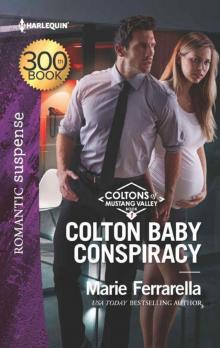 Colton Baby Conspiracy (The Coltons 0f Mustang Valley Book 1)
Colton Baby Conspiracy (The Coltons 0f Mustang Valley Book 1)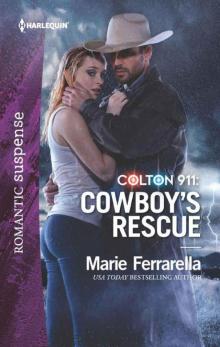 Cowboy's Rescue (Colton 911 Book 1)
Cowboy's Rescue (Colton 911 Book 1) Bridesmaid For Hire (Matchmaking Mamas Book 23)
Bridesmaid For Hire (Matchmaking Mamas Book 23) Secrets of Forever
Secrets of Forever Fortune's Greatest Risk (The Fortunes 0f Texas: Rambling Rose Book 4)
Fortune's Greatest Risk (The Fortunes 0f Texas: Rambling Rose Book 4) Cavanaugh Cowboy
Cavanaugh Cowboy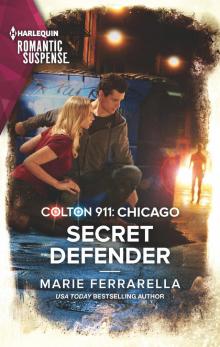 Colton 911: Secret Defender
Colton 911: Secret Defender Cavanaugh Stakeout
Cavanaugh Stakeout The Late Bloomer's Road to Love
The Late Bloomer's Road to Love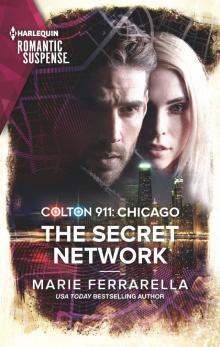 Colton 911--The Secret Network
Colton 911--The Secret Network An Unexpected Father
An Unexpected Father The Lawman's Romance Lesson (Forever, Tx. Series Book 20)
The Lawman's Romance Lesson (Forever, Tx. Series Book 20) Coming to a Crossroads
Coming to a Crossroads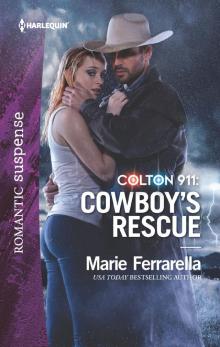 Colton 911: Cowboy's Rescue
Colton 911: Cowboy's Rescue Summer of Love
Summer of Love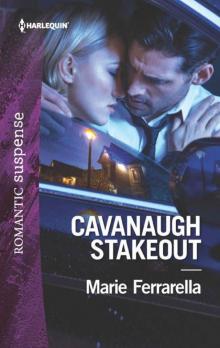 Cavanaugh Stakeout (Cavanaugh Justice Book 41)
Cavanaugh Stakeout (Cavanaugh Justice Book 41) Texan Seeks Fortune
Texan Seeks Fortune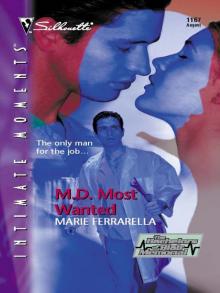 M.D. Most Wanted
M.D. Most Wanted Cavanaugh In Plain Sight (Cavanaugh Justice Book 42)
Cavanaugh In Plain Sight (Cavanaugh Justice Book 42)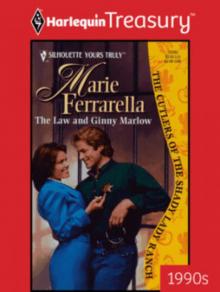 The Law and Ginny Marlow
The Law and Ginny Marlow Bridesmaid for Hire
Bridesmaid for Hire A Match for the Doctor
A Match for the Doctor The Sheriff’s Christmas Surprise
The Sheriff’s Christmas Surprise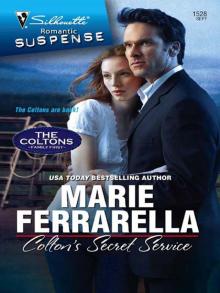 Colton's Secret Service
Colton's Secret Service A WEDDING FOR CHRISTMAS
A WEDDING FOR CHRISTMAS A Cavanaugh Christmas
A Cavanaugh Christmas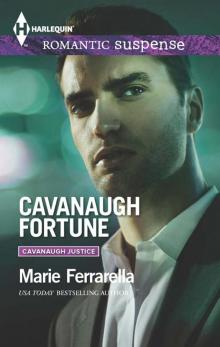 Cavanaugh Fortune
Cavanaugh Fortune The 39-Year-Old Virgin
The 39-Year-Old Virgin Coming To A Crossroads (Matchmaking Mamas Book 24)
Coming To A Crossroads (Matchmaking Mamas Book 24)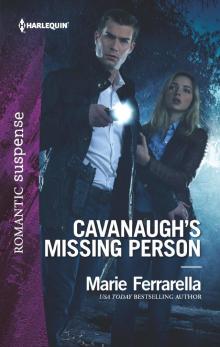 Cavanaugh's Missing Person
Cavanaugh's Missing Person Cavanaugh on Call
Cavanaugh on Call The M.D.'s Surprise Family
The M.D.'s Surprise Family Angus's Lost Lady
Angus's Lost Lady Her Red-Carpet Romance
Her Red-Carpet Romance Choices (A Woman's Life)
Choices (A Woman's Life) Prescription for Romance
Prescription for Romance A Perfectly Imperfect Match (Matchmaking Mamas)
A Perfectly Imperfect Match (Matchmaking Mamas)![[Kate's Boys 04] - Travis's Appeal Read online](http://i1.bookreadfree.com/i/03/21/kates_boys_04_-_traviss_appeal_preview.jpg) [Kate's Boys 04] - Travis's Appeal
[Kate's Boys 04] - Travis's Appeal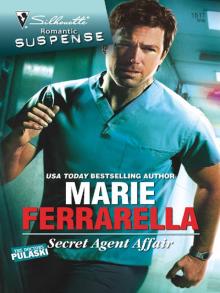 Secret Agent Affair
Secret Agent Affair The Cowboy's Lesson in Love
The Cowboy's Lesson in Love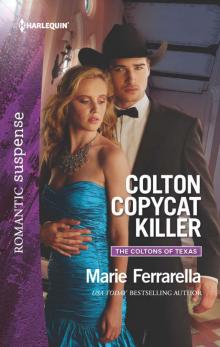 Colton Copycat Killer
Colton Copycat Killer A Small Fortune
A Small Fortune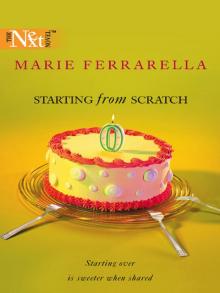 Starting from Scratch
Starting from Scratch Her Forever Cowboy
Her Forever Cowboy Colton Showdown
Colton Showdown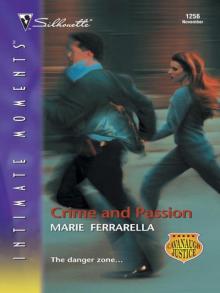 Crime and Passion
Crime and Passion The Heart of a Ruler
The Heart of a Ruler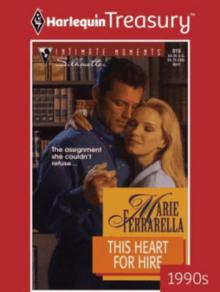 This Heart for Hire
This Heart for Hire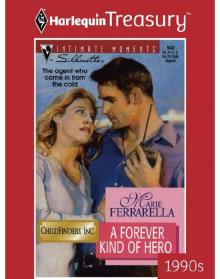 A Forever Kind of Hero
A Forever Kind of Hero Special Agent's Perfect Cover
Special Agent's Perfect Cover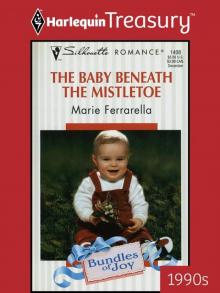 The Baby Beneath the Mistletoe
The Baby Beneath the Mistletoe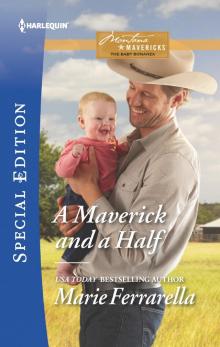 A Maverick and a Half
A Maverick and a Half The Doctor's Guardian
The Doctor's Guardian Cavanaugh Undercover
Cavanaugh Undercover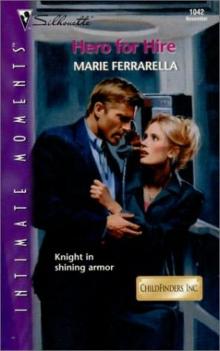 Hero for Hire
Hero for Hire Fortune's Heirs: Reunion
Fortune's Heirs: Reunion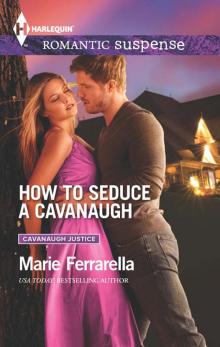 How to Seduce a Cavanaugh
How to Seduce a Cavanaugh The Heiress’s 2-Week Affair
The Heiress’s 2-Week Affair Twice a Hero, Always Her Man
Twice a Hero, Always Her Man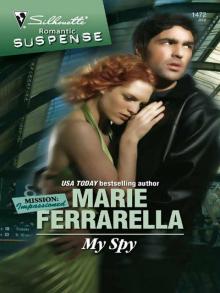 My Spy
My Spy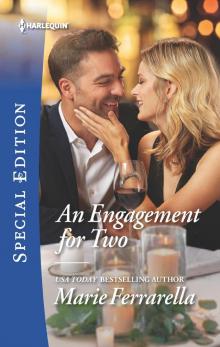 An Engagement for Two
An Engagement for Two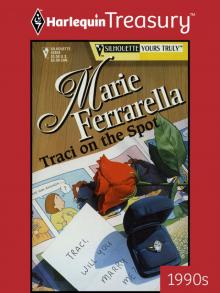 Traci On The Spot
Traci On The Spot Carrying His Secret
Carrying His Secret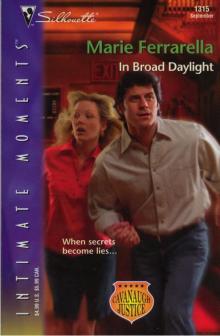 In Broad Daylight
In Broad Daylight Cavanaugh Cold Case
Cavanaugh Cold Case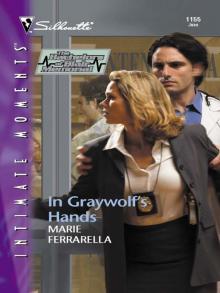 In Graywolf’s Hands
In Graywolf’s Hands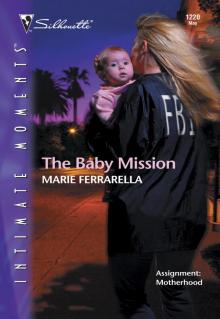 The Baby Mission
The Baby Mission Real Vintage Maverick
Real Vintage Maverick Twins on the Doorstep
Twins on the Doorstep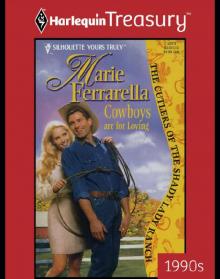 Cowboys Are For Loving
Cowboys Are For Loving Heart of a Hero
Heart of a Hero The Cowboy's Christmas Surprise
The Cowboy's Christmas Surprise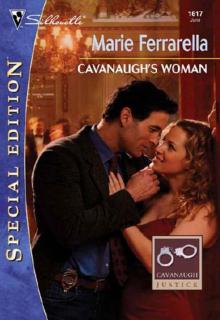 Cavanaugh’s Woman
Cavanaugh’s Woman Sundays Are for Murder
Sundays Are for Murder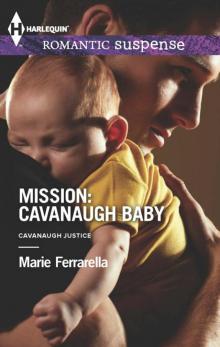 Mission: Cavanaugh Baby
Mission: Cavanaugh Baby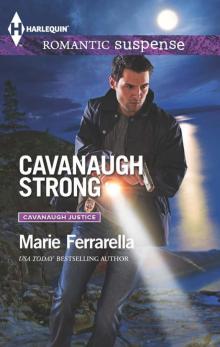 Cavanaugh Strong
Cavanaugh Strong Wish Upon a Matchmaker
Wish Upon a Matchmaker Dangerous Games
Dangerous Games What the Single Dad Wants...
What the Single Dad Wants... Rough Around the Edges
Rough Around the Edges Cavanaugh Judgment
Cavanaugh Judgment Cavanaugh Watch
Cavanaugh Watch Cavanaugh's Secret Delivery
Cavanaugh's Secret Delivery The Pregnant Colton Bride
The Pregnant Colton Bride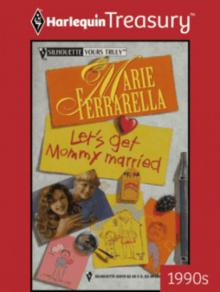 Let's Get Mommy Married
Let's Get Mommy Married Searching for Cate
Searching for Cate A Forever Christmas
A Forever Christmas Dangerous Disguise
Dangerous Disguise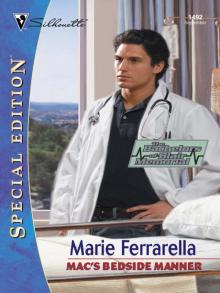 Mac’s Bedside Manner
Mac’s Bedside Manner Cavanaugh Pride
Cavanaugh Pride The Fortune Most Likely To...
The Fortune Most Likely To...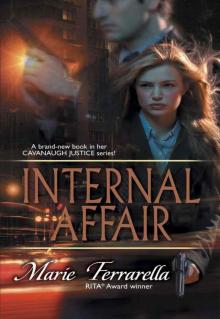 Internal Affair
Internal Affair A Second Chance for the Single Dad
A Second Chance for the Single Dad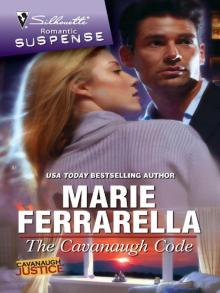 The Cavanaugh Code
The Cavanaugh Code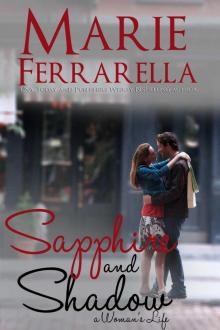 Sapphire and Shadow (A Woman's Life)
Sapphire and Shadow (A Woman's Life)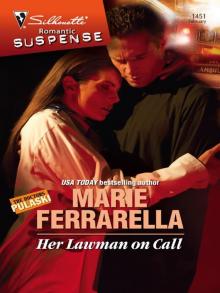 Her Lawman on Call
Her Lawman on Call A Dad At Last
A Dad At Last Her Right-Hand Cowboy (Forever, Tx Series Book 21)
Her Right-Hand Cowboy (Forever, Tx Series Book 21) Cavanaugh Heat
Cavanaugh Heat![[Ladera by the Sea 01] - A Wedding for Christmas Read online](http://i1.bookreadfree.com/i1/03/27/ladera_by_the_sea_01_-_a_wedding_for_christmas_preview.jpg) [Ladera by the Sea 01] - A Wedding for Christmas
[Ladera by the Sea 01] - A Wedding for Christmas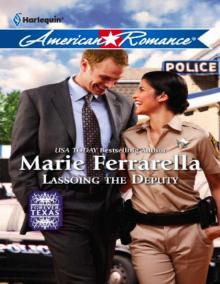 Lassoing the Deputy
Lassoing the Deputy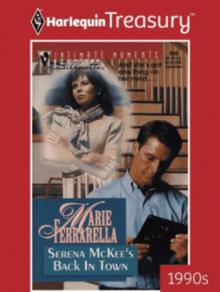 Serena Mckee's Back In Town
Serena Mckee's Back In Town A Baby on the Ranch: A Baby on the RanchRamona and the Renegade
A Baby on the Ranch: A Baby on the RanchRamona and the Renegade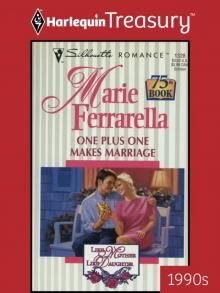 One Plus One Makes Marriage
One Plus One Makes Marriage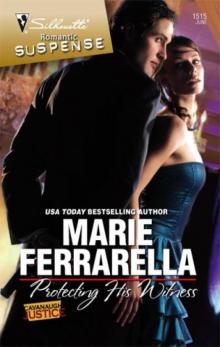 Protecting His Witness
Protecting His Witness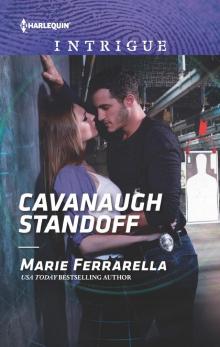 Cavanaugh Standoff
Cavanaugh Standoff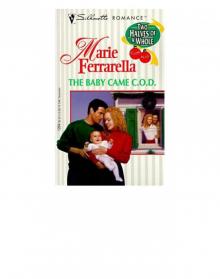 The Baby Came C.O.D.
The Baby Came C.O.D. The Setup
The Setup Texas Rose
Texas Rose Three Marie Ferrarella Romances Box Set One
Three Marie Ferrarella Romances Box Set One The Lawman's Romance Lesson
The Lawman's Romance Lesson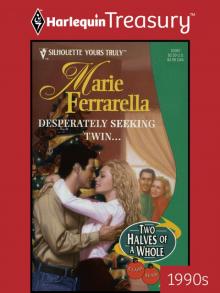 Desperately Seeking Twin...
Desperately Seeking Twin...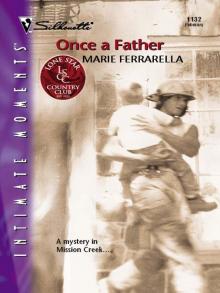 Once a Father
Once a Father![[The Sons of Lily Moreau 02] - Taming the Playboy Read online](http://i1.bookreadfree.com/i/03/25/the_sons_of_lily_moreau_02_-_taming_the_playboy_preview.jpg) [The Sons of Lily Moreau 02] - Taming the Playboy
[The Sons of Lily Moreau 02] - Taming the Playboy Lily and the Lawman
Lily and the Lawman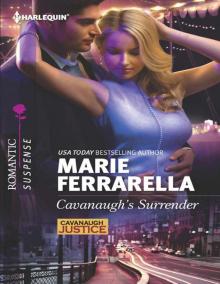 Cavanaugh's Surrender
Cavanaugh's Surrender The Cowboy and the Lady
The Cowboy and the Lady Innkeeper's Daughter
Innkeeper's Daughter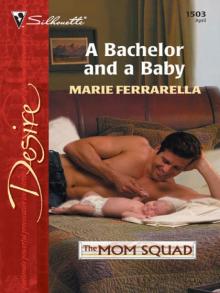 A Bachelor and a Baby
A Bachelor and a Baby![[The Sons of Lily Moreau 03] - Capturing the Millionaire Read online](http://i1.bookreadfree.com/i1/03/31/the_sons_of_lily_moreau_03_-_capturing_the_millionaire_preview.jpg) [The Sons of Lily Moreau 03] - Capturing the Millionaire
[The Sons of Lily Moreau 03] - Capturing the Millionaire Because a Husband Is Forever
Because a Husband Is Forever Diamond in the Rough
Diamond in the Rough The Doctor's Forever Family
The Doctor's Forever Family A Lawman for Christmas
A Lawman for Christmas Cavanaugh Rules: Cavanaugh RulesCavanaugh Reunion
Cavanaugh Rules: Cavanaugh RulesCavanaugh Reunion Baby Times Two
Baby Times Two![[The Sons of Lily Moreau 01] - Remodeling the Bachelor Read online](http://i1.bookreadfree.com/i1/04/02/the_sons_of_lily_moreau_01_-_remodeling_the_bachelor_preview.jpg) [The Sons of Lily Moreau 01] - Remodeling the Bachelor
[The Sons of Lily Moreau 01] - Remodeling the Bachelor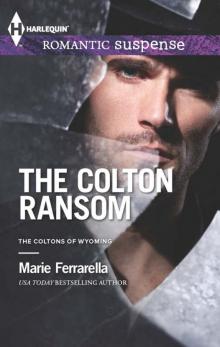 The Colton Ransom
The Colton Ransom Mendoza's Secret Fortune
Mendoza's Secret Fortune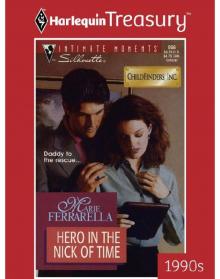 Hero in the Nick of Time
Hero in the Nick of Time![[Kate's Boys 03] - Mistletoe and Miracles Read online](http://i1.bookreadfree.com/i1/04/02/kates_boys_03_-_mistletoe_and_miracles_preview.jpg) [Kate's Boys 03] - Mistletoe and Miracles
[Kate's Boys 03] - Mistletoe and Miracles The Man Who Would Be Daddy
The Man Who Would Be Daddy Fortune's Second-Chance Cowboy
Fortune's Second-Chance Cowboy Coming Home for Christmas
Coming Home for Christmas Her Special Charm
Her Special Charm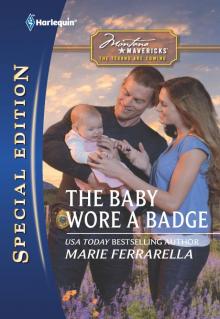 The Baby Wore a Badge
The Baby Wore a Badge Perfect Wyoming Complete Collection: Special Agent's Perfect Cover ; Rancher's Perfect Baby Rescue ; A Daughter's Perfect Secret ; Lawman's Perfect Surrender ; The Perfect Outsider ; Mercenary's Perfect Mission
Perfect Wyoming Complete Collection: Special Agent's Perfect Cover ; Rancher's Perfect Baby Rescue ; A Daughter's Perfect Secret ; Lawman's Perfect Surrender ; The Perfect Outsider ; Mercenary's Perfect Mission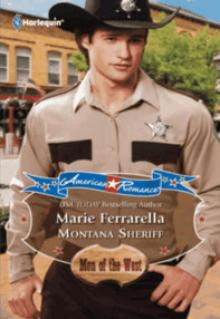 Montana Sheriff
Montana Sheriff Fiona And The Sexy Stranger
Fiona And The Sexy Stranger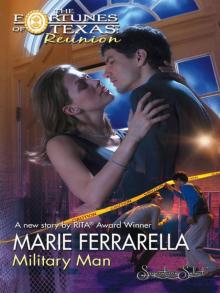 Military Man
Military Man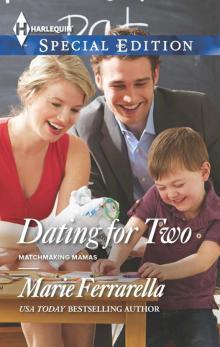 Dating for Two (Matchmaking Mamas)
Dating for Two (Matchmaking Mamas) Cavanaugh Encounter
Cavanaugh Encounter In His Protective Custody
In His Protective Custody A Small Town Thanksgiving
A Small Town Thanksgiving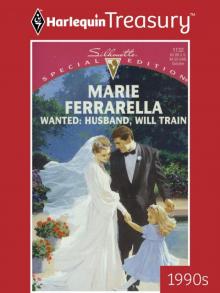 Wanted: Husband, Will Train
Wanted: Husband, Will Train Suddenly...Marriage!
Suddenly...Marriage! Plain Jane and the Playboy
Plain Jane and the Playboy Private Justice
Private Justice The Strong Silent Type
The Strong Silent Type Christmas Cowboy Duet
Christmas Cowboy Duet Flash and Fire
Flash and Fire Colton by Marriage
Colton by Marriage Fortune's Valentine Bride
Fortune's Valentine Bride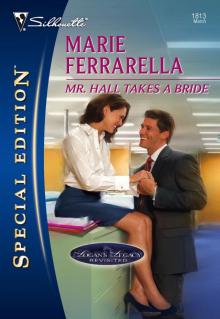 Mr. Hall Takes a Bride
Mr. Hall Takes a Bride Her Good Fortune
Her Good Fortune The Disenchanted Duke
The Disenchanted Duke Beauty and the Baby
Beauty and the Baby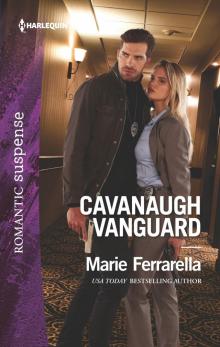 Cavanaugh Vanguard
Cavanaugh Vanguard In Bed with the Badge
In Bed with the Badge My Phony Valentine
My Phony Valentine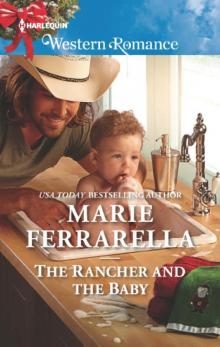 The Rancher and the Baby
The Rancher and the Baby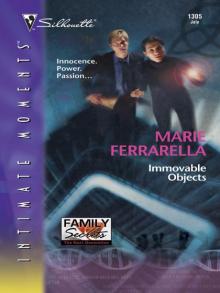 Immovable Objects
Immovable Objects Cavanaugh Reunion
Cavanaugh Reunion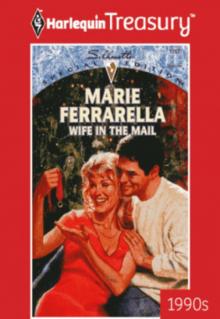 Wife in the Mail
Wife in the Mail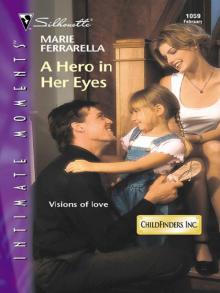 A Hero in Her Eyes
A Hero in Her Eyes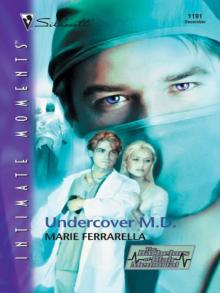 Undercover M.D.
Undercover M.D. Colton Undercover
Colton Undercover Found: His Perfect Wife
Found: His Perfect Wife Dr. Forget-Me-Not (Matchmaking Mamas)
Dr. Forget-Me-Not (Matchmaking Mamas) Loving the Right Brother
Loving the Right Brother Holiday in a Stetson: The Sheriff Who Found ChristmasA Rancho Diablo Christmas
Holiday in a Stetson: The Sheriff Who Found ChristmasA Rancho Diablo Christmas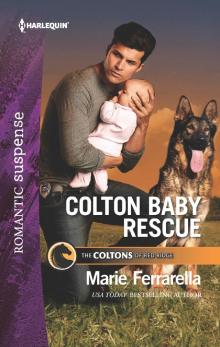 Colton Baby Rescue
Colton Baby Rescue Baby's First Christmas
Baby's First Christmas LASSOED BY FORTUNE
LASSOED BY FORTUNE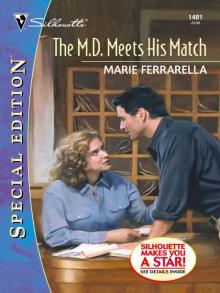 The M.D. Meets His Match
The M.D. Meets His Match A Baby for Christmas
A Baby for Christmas His Forever Valentine
His Forever Valentine The Inheritance
The Inheritance The Woman Who Wasn't There
The Woman Who Wasn't There![[Kate's Boys 05] - A Lawman for Christmas Read online](http://i1.bookreadfree.com/i2/04/09/kates_boys_05_-_a_lawman_for_christmas_preview.jpg) [Kate's Boys 05] - A Lawman for Christmas
[Kate's Boys 05] - A Lawman for Christmas Husbands and Other Strangers
Husbands and Other Strangers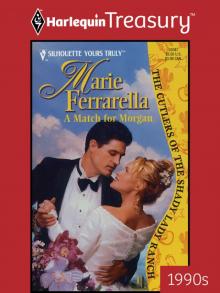 A Match for Morgan
A Match for Morgan The Doctor's Guardian & Tempted By His Target
The Doctor's Guardian & Tempted By His Target The Offer She Couldn't Refuse
The Offer She Couldn't Refuse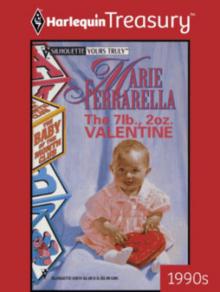 The 7 Lb., 2 Oz. Valentine
The 7 Lb., 2 Oz. Valentine Fixed Up with Mr. Right?
Fixed Up with Mr. Right? Husband: Some Assembly Required
Husband: Some Assembly Required Adding Up to Family
Adding Up to Family Cavanaugh or Death
Cavanaugh or Death Unwrapping the Playboy
Unwrapping the Playboy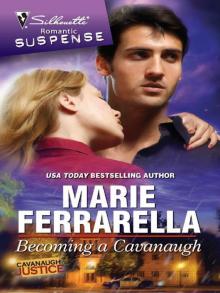 Becoming a Cavanaugh
Becoming a Cavanaugh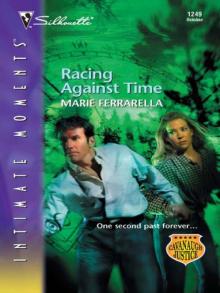 Racing Against Time
Racing Against Time Christmastime Courtship
Christmastime Courtship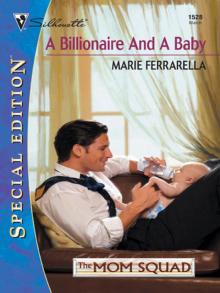 A Billionaire and a Baby
A Billionaire and a Baby Ten Years Later...
Ten Years Later...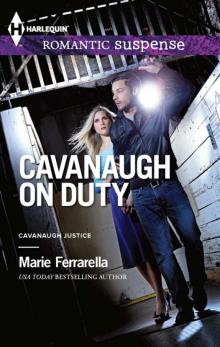 Cavanaugh on Duty
Cavanaugh on Duty Cavanaugh Hero
Cavanaugh Hero Finding Happily-Ever-After
Finding Happily-Ever-After The Prodigal M.D. Returns
The Prodigal M.D. Returns Mendoza's Secret Fortune (The Fortunes of Texas: Cowboy Country)
Mendoza's Secret Fortune (The Fortunes of Texas: Cowboy Country)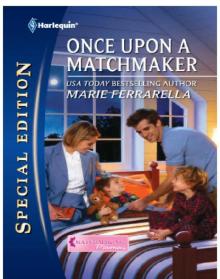 Once Upon a Matchmaker
Once Upon a Matchmaker Diamond in the Ruff (Matchmaking Mamas Book 13)
Diamond in the Ruff (Matchmaking Mamas Book 13) Fortune's Just Desserts
Fortune's Just Desserts![[Kate's Boys 02] - The Bride With No Name Read online](http://i1.bookreadfree.com/i2/04/10/kates_boys_02_-_the_bride_with_no_name_preview.jpg) [Kate's Boys 02] - The Bride With No Name
[Kate's Boys 02] - The Bride With No Name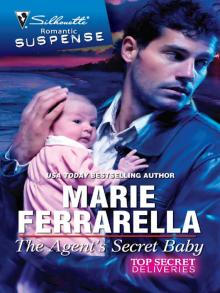 The Agent's Secret Baby
The Agent's Secret Baby Doctoring the Single Dad
Doctoring the Single Dad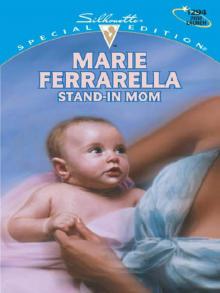 Stand-In Mom
Stand-In Mom Diamonds and Deceptions
Diamonds and Deceptions The Bride Wore Blue Jeans
The Bride Wore Blue Jeans The Amnesiac Bride
The Amnesiac Bride Cavanaugh's Bodyguard
Cavanaugh's Bodyguard Brooding Angel
Brooding Angel The Once and Future Father
The Once and Future Father Cavanaugh in the Rough
Cavanaugh in the Rough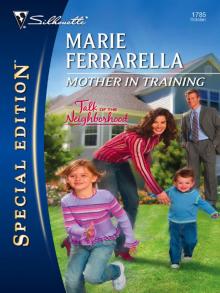 Mother in Training
Mother in Training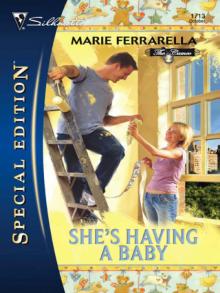 She’s Having a Baby
She’s Having a Baby Never Too Late For Love
Never Too Late For Love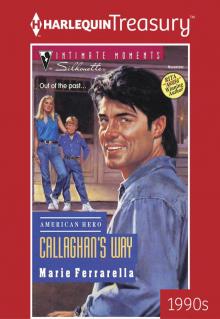 Callaghan's Way
Callaghan's Way Happy New Year--Baby!
Happy New Year--Baby!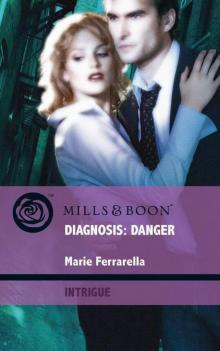 Diagnosis: Danger
Diagnosis: Danger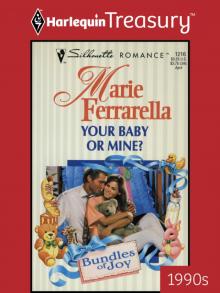 Your Baby Or Mine?
Your Baby Or Mine? The Maverick's Return
The Maverick's Return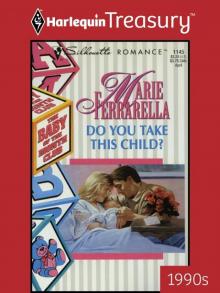 Do You Take This Child?
Do You Take This Child? The Women in Joe Sullivan's Life
The Women in Joe Sullivan's Life The Second Time Around
The Second Time Around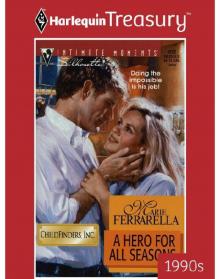 A Hero for All Seasons
A Hero for All Seasons